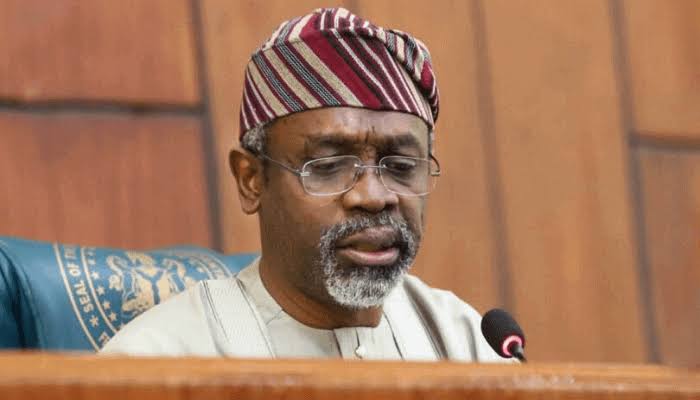The Nigeria lower chamber is proposing a four-year tenure for the holder of the office of Inspector General of Police, IGP for effectiveness and optimal performances through a Bill which seeks ‘repeal Police Service Commission Act and re-enact the Police Service Commission bill, 2020.‘
Speaking at the Public hearing on the bill to strengthen the commission to be more functional in its operations and a bill for the establishment of the National Institute for Police Studies, in Abuja on Thursday, the sponsor of the Bill, Hon Yusuf Gadgi reiterated the resolve of the House towards statutory reforms of the Police force and other urgent areas of intervention with a view to make the police force function better, including recruitment, training, funding and operational priorities.
The Lawmaker observed that there was no bottleneck on the issue of four-year tenure for the holder of the Inspector General of Police, as well as issue bothering on gender disparity against women on the appointment of Inspector General of Police.
According to him, “as long as the Bill emanates from the National Assembly, from the Nigerian people, everybody that deserves to benefit from that Bill ought to benefit and what was the wisdom in the National Assembly giving four years tenure to the Inspector General of Police? Police are the only lead security agency in the country
“Military is in the maintenance of internal security because of the aggregate nature of the insecurity in Nigeria. We need Police reforms, from 1999 to date we have about 11- 12 IGs, some serve for seven months, some for one year, how can you reform the institution when you have the person to superintendent over that institution serve only seven months, the initiatives of the other person will be thrown away. He will start his police reform differently and that is why the Nigerian through the National Assembly allocates a tenure of office to the IG so that he will have the time to carry out reforms.”
Declaring open the Public hearing session, the Speaker of the House of Representatives, Femi Gbajabiamila assured Nigerians and the international community of the 9th Assembly’s resolve to bequeath a Police Force that would act within the limit of the law and respect the rule of law.
He said that, “Reforming the Nigerian security architecture, with specific emphasis on our policing system and law enforcement, is one of the cardinal commitments of the 9th House of Representatives. It is a commitment against which our tenure in office will be measured.
“When the time for assessment and judgment comes, we must not be found wanting. The Nigerian people deserve a Police Force that they can trust. They deserve a Police Force that acts within the limits of the law and respects the rule of law. We will do everything in our power to meet these expectations.
“These issues are the responsibility of the Police Force administration and the executive. Nonetheless, the 9th House of Representatives will be part of those conversations around effecting changes in this regard, and we will do our utmost to ensure that everything that ought to be done is done and done right,” the Speaker added.
He also stressed instituting an independent system for holding errant police officers to account for abuses of power and related misconduct in office.
According to him, the bill proposed changes to the composition of the Police Service Commission (PSC), “reorganising the Commission to be public-facing and able to receive and investigate complaints against Police Officers, as well as, increasing the minimum requirement for recruitment into the constabulary and allow for the recruitment of more qualified candidates into the Nigerian Police Force (NPF).”
Also speaking, the Inspector General of Police, Mohammed Adamu warned against setting a bad precedent on the appointment of PSC Chairman, canvassed for the appointment of a technocrat who understands the “workings of the Police for you to be able to have oversight functions for the police. On this note, we adopt what the Minister of Police Affairs said in terms of comments on the PSC bill.”
The IGP who affirmed that Policing in the world has changed, underscored the need for adequate training of Police to lead in other spheres of life after leaving the service.
“So we needed an institute that will deal with policing and security matters. In the whole of Africa, we do not have, even that field is so new that you hardly get professors in the field. So we came up with this Institute for Police Studies, so that our colleague officers at the strategic level from Assistant Commissioners of Police, Deputy commissioners of police, up to Commissioners of Police, will have strategic knowledge of what is happening in policing all over the world, so it can be applied within our own clime so as to solve the series of security problems that we are having within the country.
Speaking earlier, Chairman, House Committee on Police, Hon Usman Kumo, promised a level-playing field for all the stakeholders to make their submissions in a just and fair atmosphere.
Hon Kumo called on all presenters to be “God-fearing”, nationalistic, frank and open-minded to assist the committee in producing a report that would meet the expectations of the House and Nigerians in general.
On his part, the Minister of Police Affairs, Muhammad Dingyadi applauded the provisions of section 4 or Section 6 (1b) of the bill which empowers the Commission to employ, train, discipline and deploy persons to serve as Investigation Officers in all the States of the Federation.
“The Commission has the powers to establish Investigation Units in the States and the FCT, investigate allegations of misconduct made against Police Officers. We just want to emphasise that this seems to be in order, because the extension of the powers of the Commission to discipline Officers, there is need for proper investigation of allegations of wrongdoing against Police Officers in the discharge of their duties.”
